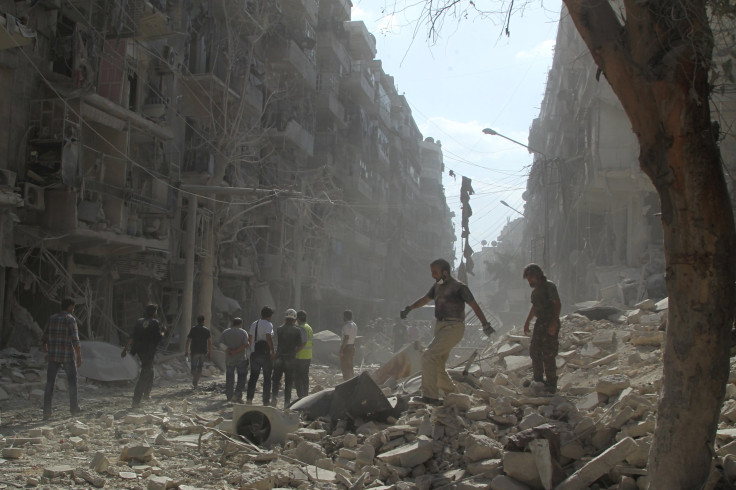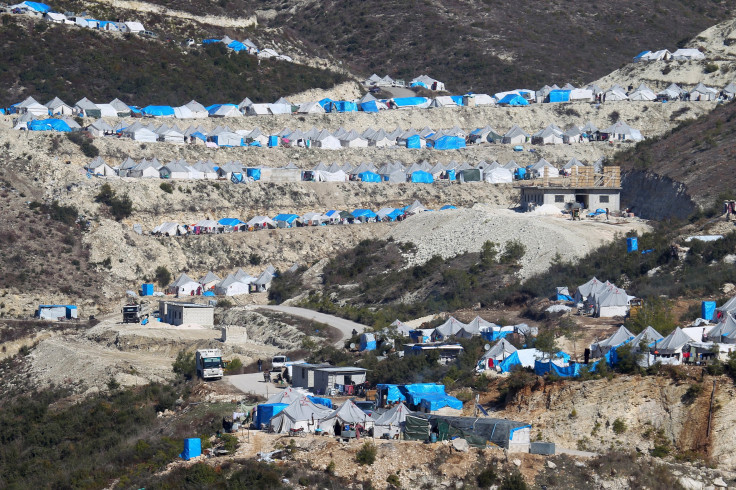Will Syria Talks Lead To Peace? Concessions In New Geneva Round Doubted By Some

Nearly two years after the last round of Geneva peace talks tried to resolve the civil war in Syria, officials are expected Friday to gather once more to try to negotiate a political solution to the crisis that has left more than 250,000 people dead and displaced millions more. But the preparations for the talks have gotten off to a rocky start and it’s still unclear which parties will participate in the United Nations-backed sessions that were supposed to start Monday as officials face a new set of challenges, including the rise of the Islamic State group (also known as ISIS), the refugee crisis in Europe and Russia’s recent involvement in the conflict.
U.N. Special Envoy Staffan de Mistura faces what may be the most difficult job in international relations as he attempts to have the Syrian government, armed opposition groups and international actors come to the table. Two past negotiators, Lakhdar Brahimi and Kofi Annan, failed to broker a lasting peace accord in 2012 and 2014, respectively. With a difficult set of circumstances, experts have questioned whether the new round of talks will make much headway among parties on the ground that are likely unwilling to make concessions.
“I don’t think [de Mistura] can pull a rabbit out of the hat,” said Robert Ford, a senior fellow at the Middle East Institute in Washington, D.C., and U.S. ambassador to Syria from 2011 to 2014. “People who believe this is going to lead somewhere, I think that is based on hope and not analysis. We all hope for progress, you just can’t help hope for it when you look at what has happened to Syria, but the hard fact is you are dealing on the one hand with a government that used barrel bombs and chemical weapons ... and on the other hand the opposition fighters have no incentive to make concessions.”

The talks are expected to first aim for a ceasefire and then work toward a larger political settlement. But experts doubt the proposed six-month timeline will be enough to deal with a conflict that has raged for nearly five years and destroyed large areas of Syria.
International involvement has further complicated talks. Russia’s airstrikes in Syria beginning at the end of September have helped shore up President Bashar Assad’s regime, allowing government forces to regain approximately 1.3 percent of its territory, Jane’s Defence reported. Government forces captured the town of Sheikh Maskin Monday, strengthening their grip on the southern province of Deraa, Reuters reported.
Rumors have circulated about Russia expanding its footprint on the ground, with additional bases outside of the Latakia area underscoring that the Kremlin plans to be involved for the long term. Russia has long backed the Assad regime, and while it has hinted in recent months that the leader could eventually step down, recent gains have called that into question.
"We are now at a moment of hope amid the horror"
John Ging @UNOCHA Director of Operations on the #SyriaTalks. pic.twitter.com/C2V7XQ4Kga
— UN Geneva (@UNGeneva) January 26, 2016“I think the Russians will bargain pretty hard for significant roles for the Alawite minority in whatever governing bodies emerge, both transitional and as well as long term,” said Paul Schwartz, a senior associate in the Russia and Eurasia program at Washington, D.C.-based think tank the Center for Strategic and International Studies. “Ultimately their goal is more to maintain influence in Syria ... so they can also maintain their political footprint as well as their military bases in Syria.”
The role of the U.S. has also been called into question, with opposition official Asaad al-Zoubi scrutinizing Secretary of State John Kerry’s role in relation to Russia and Iran.
“It was not comfortable for us for America ... to adopt what came in the Iranian and Russian initiatives,” Zoubi said, Reuters reported. It wasn’t immediately clear whether the Higher Negotiating Committee, a group composed of opposition parties, would even attend the talks, casting further doubt on whether the talks will actually commence Friday.
With President Barack Obama leaving office in less than a year, his successor will likely be left with a complex and unresolved situation.
“There is a lot of ambiguity in the American position,” said Andrew Tabler, a fellow in the Program on Arab Politics at the Washington Institute for Near East Policy. “If the U.S. continues to push for a real transition in Syria, I think you have a whole country solution. If they cave to the Russians and the regime, going forward we will have a partial country solution and that doesn’t take care of ISIS.”
© Copyright IBTimes 2024. All rights reserved.





















